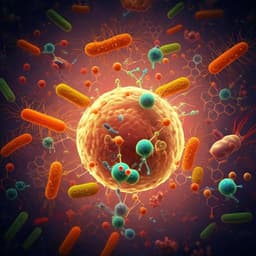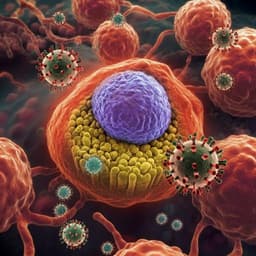
Medicine and Health
Distinct composition and metabolic functions of human gut microbiota are associated with cachexia in lung cancer patients
Y. Ni, Z. Lohinai, et al.
This groundbreaking study conducted by authors including Yueqiong Ni and Yoshitaro Heshiki explores the profound link between the gut microbiome and lung cancer cachexia, revealing distinct microbial compositions and depleted metabolites in affected patients. The findings suggest potential new therapeutic targets by linking specific microbes to cachectic metabolism.
Related Publications
Explore these studies to deepen your understanding of the subject.







